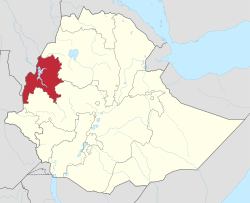
My Opinion | Jul 17,2022
Sep 14 , 2019.
The administration of Prime Minister Abiy Ahmed (PhD) has begun rolling out a transitional economic reform programme its authors have dubbed the “Homegrown Economic Reform Agenda.” Last week, in the presence of the Prime Minister, State Minister for Finance, Eyob Tekalign (PhD), made an impressive standing before representatives of the international community, akadevelopment partners.
It was refreshing to see a technocrat presenting a coherent government policy document with such confidence and competence in both content and delivery. Alongside Yinager Dessie (PhD), governor of the central bank, Eyob was nothing but eloquent. Outlining the content of his government`s economic reform agenda, Eyob was as dazzling to members of the Development Assistance Group (DAG) as he was generous in acknowledging past accomplishments. His admissions of the limit to the road traveled to date was sober, and he hit the bull’s eye in rolling out the way forward. It signaled the dawning of the era of economic liberalism under the Ethiopian sky.
It is about time.
Ensuring a growth ecosystem for continued progress should be the ultimate goal of economic policy making. But the trick is how to define the purpose progress is meant to serve: economic and technological growth or the advancement of social justice?
Depending on how these policy makers are inclined, their formulation differs accordingly.
For instance, social justice, or the absence thereof, is characterised by a society that has growing inequality and a sense of ressentiment due to relative deprivation. But that is what happens when a particular policy encourages the advancement of economic growth in a political environment where the ruler’s legitimacy is questioned, while transparency and accountability are the dominant issues.
Following the model of an activist/administrative state keen to see growth at any cost, Ethiopia has managed to change the painful narrative it had been defined by beginning in the 1970s.
Its economy expanded eight-fold from less than 10 billion dollars in 1992. Per capita income grew six-fold to 768 dollars last year; and, the poverty headcount ratio dropped to 24pc in 2015, from 39pc a decade ago. The percentage of children dying before they reach the age of five dropped by half, as the years Ethiopians live on average went up to 66. The number of children going to school increased four-fold, and access to electricity, potable water and all-weather roads remarkably expanded.
Despite these many gains, the context in which this was achieved was under a debt-laden economy and heavy-handed state, which is characterised by lack of transparency and accountability. It led to a growing demand for political inclusiveness, social justice and equity in the economy.
The official narrative - that there has been “fast and sustained growth” - was not persuasive enough for a young population that continued to press with demands for more jobs, a response to income inequality among citizens and disparity between regional states.
A large swath of the population has been doing much better than they did a decade ago. However, a relative few have been doing remarkably well. Even though there has been growth across the board, exponential growth for a small portion of the population was evident. Human nature being what it is, no matter how well one is doing, one will always look at the other side of the fence. This gross inequality (some real, some perceived) has built ressentimentthat has led almost to a situation of ungovernability.
Not surprisingly, a generation revolted against growing corruption, official theft and inadequate provisions of public services.
An administration propelled to political power by such discontent has no choice but to address such ressentiment. In the making for the past one and a half years, the answer appears to be a three-year reform programme that is now called, “Homegrown Economic Reform Agenda: A Pathway to Prosperity.”
It is a blueprint for an operation Ricardo Hausmann of the Center for International Development at Harvard University, who studied the bottlenecks of growth in Ethiopia, equates with “endodontic therapy.” It is a dental procedure where the doctor removes structures before subsequently cleaning, shaping and decontaminating the hollow with tiny files and irrigated solutions.
That the administration recognised the urgent need for engaging with transitional economic policy making to perform endodontic surgery on the economy is to be applauded. One of the criticisms leveled at it has been that it was not giving the level of attention the economy deserves. It is reassuring to see evidence that the leadership at the highest level, beginning with the Prime Minister, is giving a heck about the economy. That it has put an effort to come up with a well-considered and thoroughly thought out plan is encouraging.
The agenda is a road map for economic growth to rebalance economic fundamentals and create jobs as well as further reduce poverty through inclusive growth. It does not lack ambition.
The agenda, which chooses to focus on macroeconomic, structural and sectoral reforms, should be measured by its ability to address structural constraints that impeded growth and social prosperity. It should be judged by the choices its authors made in seeing inflation, the dearth of forex, external debt, unemployment and dwindling reserves as symptoms rather than sources of the ills.
The ills come mainly from debt and regulatory burdens, both of which are illustrations of how the all-knowing state behaves. Redefining the role of the administrative state and reducing its activism in the economy is where the focus should be. In both terms, the current reform agenda is on target. It aspires to rebuild confidence among leaders of the private sector, hoping to rebalance growth and enhance productivity and competitiveness.
That its end game is to create jobs is not off the mark. The youth bulge swelling the ranks of the unemployed is probably the most urgent challenge to the country as it is a problem that directly ties to the current political scene. It has to be urgently addressed if the peace and stability that is a prerequisite for any economic growth is to be achieved.
The administration is betting heavily on the private sector, whose creativity and entrepreneurship it hopes to unleash by easing business constraints in the bureaucracy. Correcting market failures in different sectors of the economy is also given sufficient attention in the reform plan.
However, proper planning, as essential and laudable as it might seem, is only half the battle. The real combat in the trenches happens in the execution of this agenda. The performance of the middle management and the foot soldiers in the civil service is what will make or break the result.
The same level of effort and proficiency that was applied to sell the agenda to the international community should be used to get the buy-in from the executing civil service in the bureaucracy. That is where the rubber meets the road.
Now that the war plan is ready, the challenge will continue to be limited capacity in the bureaucracy and lack of institutional strength. Just look at the National Bank of Ethiopia (NBE) to see how far an institution can lag behind an ambitious reform agenda.
PUBLISHED ON
Sep 14,2019 [ VOL
20 , NO
1011]

My Opinion | Jul 17,2022

Viewpoints | Feb 23,2019

Radar | Oct 30,2021

Commentaries | Feb 01,2019

Fortune News | May 13,2023

Covid-19 | Apr 08,2020

Fortune News | Mar 18,2023

Featured | Jul 13,2019

Fortune News | Aug 04,2024

Commentaries | Sep 02,2023

Photo Gallery | 176211 Views | May 06,2019

Photo Gallery | 166426 Views | Apr 26,2019

Photo Gallery | 156896 Views | Oct 06,2021

My Opinion | 136888 Views | Aug 14,2021

Dec 22 , 2024 . By TIZITA SHEWAFERAW
Charged with transforming colossal state-owned enterprises into modern and competitiv...

Aug 18 , 2024 . By AKSAH ITALO
Although predictable Yonas Zerihun's job in the ride-hailing service is not immune to...

Jul 28 , 2024 . By TIZITA SHEWAFERAW
Unhabitual, perhaps too many, Samuel Gebreyohannes, 38, used to occasionally enjoy a couple of beers at breakfast. However, he recently swit...

Jul 13 , 2024 . By AKSAH ITALO
Investors who rely on tractors, trucks, and field vehicles for commuting, transporting commodities, and f...

Oct 18 , 2025 . By NAHOM AYELE
In a sweeping reform that upends nearly a decade of uniform health insurance contribu...

A bill that could transform the nutritional state sits in a limbo, even as the countr...

Oct 18 , 2025 . By SURAFEL MULUGETA
A long-planned directive to curb carbon emissions from fossil-fuel-powered vehicles h...

Oct 18 , 2025 . By BEZAWIT HULUAGER
Transaction advisors working with companies that hold over a quarter of a billion Bir...